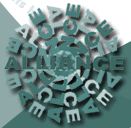September 2006 - IDEA Resources
Main Content
Family Resources: September 2006
One of the of the aims of the TRIS project is to raise awareness of rare trisomy conditions and the variety of situations and concerns families encounter. This page is intended to share resources that families can use in their daily lives.
We are now archiving previous months' Family Resources pages.
IDEA Resources
It is time for school and that can mean changes for families. Your child could be starting or continuing home-based services or you could be taking your child to a center or play group. Or you may be putting your older child on a school bus for the first time. Or your child may meet new teachers and therapists and more!
The resources below include links to information about your rights, state level contacts and ways you can be involved in designing your child’s educational program.

The Individuals with Disabilities Education Act (IDEA) has recently been reauthorized. Most services and supports are still part of the law but there are also changes. You can access Fact Sheets about the changes in both HTML and PDF formats.
In addition, there are proposed regulations for IDEA services and supports for infants and toddlers (referred to as “Early Intervention” or Part C) or for children over the age of three (referred to as “school age services” or Part B).

The National Early Childhood Technical Assistance Center (NECTAC) is a program of the FPG Child Development Institute of the University of North Carolina at Chapel Hill. NECTAC supports the implementation of the early childhood provisions of the Individuals with Disabilities Education Act (IDEA). Our mission is to strengthen service systems to ensure that children with disabilities (birth through five) and their families receive and benefit from high quality, culturally appropriate, and family-centered supports and services. [reference]
One of the resources available from NECTAC is a listing of State Part C Coordinators as well as State Part B Coordinators. Contact information is provided and you are encouraged to call or email with questions or concerns.
The most important thing you can do is be knowledgeable of your rights and responsibilities as a parent of child with a disability. NECTAC provides a variety of resources on this topic including the family’s role on the early intervention team, participation in developing your infant or toddler’s Individualized Family Support Plan as well as the procedures in preparing an Individualized Education Plan for preschoolers and school age children.
- Assuring the family’s role on the early intervention team: Explaining rights and safeguards.
- Graphic of The Early Intervention / IFSP Process
- Involving parents in the IEP process

There are also a number of family support organizations with information, resources and other supports. Often, the individuals working in these organizations have a child with a disability and have first hand knowledge of IDEA and its many parts.

Throughout the United States, there are six regional parent centers. The Technical Assistance Alliance for Parent Centers is an innovative project that supports a unified technical assistance system for the purpose of developing, assisting and coordinating Parent Training and Information Projects and Community Parent Resource Centers under the Individuals with Disabilities Education Act (IDEA). This project is funded by the U.S. Department of Education, Office of Special Education Programs and consists of 1 national center and 6 regional centers. The project is funded to strengthen the connections to the larger technical assistance network and fortify partnerships between parent centers and state education systems at regional and national levels.
Parent Training and Information Centers (PTIs) and Community Parent Resource Centers (CPRCs) in each state provide training and information to parents of infants, toddlers, children, and youth with disabilities and to professionals who work with children. This assistance helps parents to participate more effectively with professionals in meeting the educational needs of children and youth with disabilities. The Parent Centers work to improve educational outcomes for children and youth with all disabilities (emotional, learning, mental, and physical). [reference]

The mission of PACER Center is to expand opportunities and enhance the quality of life of children and young adults with disabilities and their families, based on the concept of parents helping parents. Through its ALLIANCE and other national projects, PACER, a national center, responds to thousands of parents and professionals each year. From California to Minnesota to New York, PACER resources make a difference in the lives of 6.5 million children with disabilities nationwide. With assistance to individual families, workshops, materials for parents and professionals, and leadership in securing a free and appropriate public education for all children, PACER's work affects and encourages families in Minnesota and across the nation.




